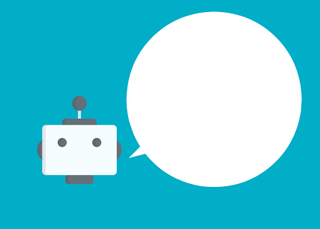Since ChatGPT debuted in late 2022, educators across K-12 and higher education have scrambled to figure out how to address the new technology.
New strategies and approaches to prevent ChatGPT cheating are being developed by education experts, including how to structure questions and guide students on using the technology appropriately.
And although there are issues to the technology being used inappropriately, the experts interviewed here have made it clear there are many potential educational benefits to ChatGPT that should not be overlooked.
1. How to Prevent ChatGPT Cheating: Don't Ban the Tool
New York City’s Department of Education has blocked ChatGPT and many of the nation’s other large school districts have implemented similar policies. The educators interviewed here agreed this is not the best approach.
“The more you ban something, the more students are going go home and use it anyway,” says Lisa Zawilinski, executive director for the Center for Teaching Excellence and Innovation at the University of Hartford.
Torrey Trust, an education professor at the University of Massachusetts Amherst, agrees. “We're surrounded by AI every day, even though people don't realize it, and it's going to become ever more present in our future,” says Trust who has made a slideshow about ChatGPT and education that is available as a free resource for teachers.
Simply banning the technology shuts off compelling discussions we should be having as a society and with students about how best to effectively and ethically use this technology going forward.
When Sheetal Sood, associate dean for assessment at the University of Hartford, started teaching she remembers many educators were against allowing students to use calculators in math class. “Nowadays, it's something that's everywhere, and I think that’s the way things are going with ChatGPT,” she says.
2. Focus on Higher Order Thinking
Educators worried about their students using ChatGPT and other AI language generators can consider including more assessments that require higher-order thinking skills.
“AI tools right now are good at the lower order thinking skills, like being able to recall information, summarize information, explain information,” Trust says. “The higher order thinking skills -- applying knowledge, creating new knowledge and original works, critiquing, evaluating, designing -- it's not something that AI tools can do.”
For instance, a teacher might give an assignment that requires students to research an environmental issue in their local community and then write a proposal for a new law to send to a local politician. ChatGPT might help the student with some of the research for this assignment, Trust says. “But designing a way to address the environmental issue, it's not something that AI tools can do.”
3. Incorporate Authentic Student Experience and Student Connections Into Questions
For shorter weekly essay questions or discussion board prompts, educators can guard against ChatGPT-generated content, and potentially create more enriching responses in the process, by having students relate the material to their life.
“Have them discuss their experiences, as opposed to taking a random prompt and elaborating on that,” Sood says. For example, education college students might be asked to respond to a reading by talking about what they’ve seen in their own educations or in their work in the field. “We're not taking away the content and the theory, but we're kind of turning it around and saying, ‘You know what? Your reflections are also as important as the content or the theory that you're learning,’” Sood says.
Zawilinski adds another way to avoid getting too many ChatGPT-generated answers is to focus on students' responses and interactions more than the initial post. “It might be now that I honor their responses to their peers, and ability to synthesize across multiple peers' responses more,” she says.
4. Use ChatGPT Detectors With Caution
A number of ChatGPT detection tools have emerged including GPTZero and a new tool from the makers of ChatGPT designed to help teachers detect content generated on the platform.
Trust cautions that these types of tools can generate fear and anxiety in students. Educators should also be mindful of student privacy and whether the tool stores student information permanently or deletes the text immediately. “I would encourage teachers at any level to really closely review that before freely uploading students' work,” she says.
Additionally, much like plagiarism detectors that are more commonly used, the results must be looked at thoughtfully by human eyes. Edward Tian, the Princeton senior who created GPTZero over winter break from his studies, told Tech & Learning that the tool should not be used by teachers to determine that a student has cheated. “I don't want anybody making definitive decisions. This is something I built out over holiday break," he said.
5. Have Open Discussions About ChatGPT and Its Uses in Your Class
One step to fostering appropriate use of ChatGPT is discussing the technology, academic integrity, and honesty with students in an open manner, Trust says. “We don't have those thoughtful conversations with students about what it really means to use work written by others, whether from the internet or from ChatGPT, and what role the technology should play in their thinking, communication, and learning,” she says. But more teachers should.
The norms around what constitutes plagiarism and cheating in regard to ChatGPT and other AI tools are still being debated. Students should be a part of that debate. These conversations will also help educators learn how best to use ChatGPT and other AI technology.
“Talk to your students,” Sood says. “It's amazing the things that they come up with in terms of how they're using ChatGPT.”


